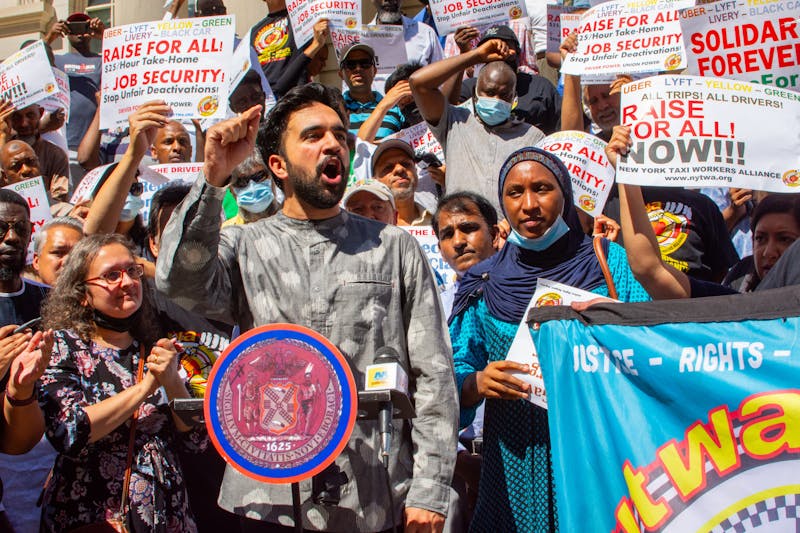Zohran Kwame Mamdani’s election as mayor of New York City represents a significant change in local politics and resonates deeply with disillusioned residents. Winning the Democratic primary, Mamdani’s platform, focused on housing affordability and inclusivity, has captured the attention of many New Yorkers who have long felt overlooked by traditional political figures.
Mamdani, a South Asian Muslim immigrant born in Uganda and raised in New York City, has made it his mission to connect with the city’s diverse population. Nearly 37% of New Yorkers are foreign-born, and 49% speak a language other than English at home. His campaign reflected this diversity, reaching out to various communities through translated materials in Urdu, Arabic, Bangla, and Spanish. By engaging directly with residents, including taxi drivers and local business owners, he has positioned himself as a representative of the multifaceted identity of New York City.
Housing affordability remains a pressing issue in the city, where average monthly rent has soared to approximately $3,966, significantly higher than the U.S. national average of $1,625. Mamdani’s approach contrasts sharply with that of the current mayor, Eric Adams, who has overseen a 12.6% increase in rents for stabilized apartments. Mamdani proposes to build 200,000 new rent-stabilized homes over the next decade, alongside initiatives such as city-owned grocery stores and fare-free public transport.
His campaign has also introduced an “affordability calculator,” projecting that families could save an estimated $45,960 annually through his proposed reforms. This focus on practical solutions stands in stark opposition to the often vague promises typical of political campaigns.
Mamdani’s candidacy has not been without controversy. He has been vocal in his criticism of the Israeli government’s actions in Gaza, aligning with calls from the United Nations that characterize these actions as genocidal. His plan to terminate the New York City-Israel Economic Council, established by Mayor Adams, has sparked considerable debate. Mamdani distinguishes between anti-Zionism and antisemitism, emphasizing his commitment to protecting Jewish New Yorkers while holding the Israeli government accountable.
The campaign has faced significant backlash from opponents, particularly from former New York governor Andrew Cuomo, who has attempted to label Mamdani as a “terrorist sympathizer.” Such attacks reflect broader societal issues surrounding race and religion in politics. Critics have used Islamophobic rhetoric, questioning Mamdani’s fitness for office based solely on his Muslim identity.
Despite the challenges, Mamdani’s campaign has energized a new generation of voters, particularly among South Asians and younger demographics. His ability to maintain authenticity amid political pressure is a refreshing shift in a landscape often characterized by conformity.
The implications of Mamdani’s election extend beyond policy. For many in New York, particularly those from marginalized communities, his victory represents a reclaiming of political space. Mamdani’s journey reflects a growing desire for representation that resonates with the lived experiences of New Yorkers.
As the city prepares for this new chapter under Mamdani’s leadership, there is hope among residents that the administration will focus on their needs, fostering a more inclusive and equitable New York City. For many, his win feels like a profound change — a breath of fresh air in a political climate that has often felt suffocating.







